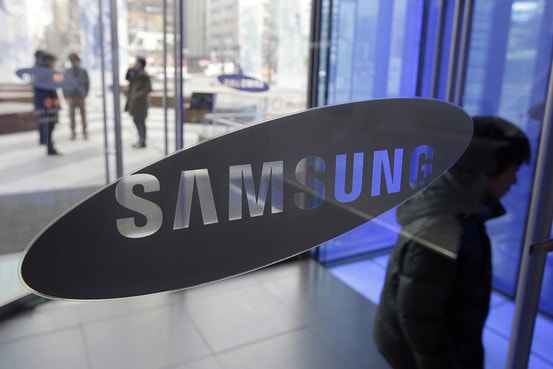In the exploding world of consumer electronics, Samsung is a name most everyone is familiar with. It’s either on your shiny, new Android phone, your dazzlingly crisp UHD TV, or on kitchen appliances like refrigerators and washer/dryers. Samsung Electronics America, a wholly owned subsidiary of Samsung Electronics Co., Ltd., has been a leader in innovation and technology with offices worldwide.
Here in the U.S. the focus is on a wide range of digital consumer electronics; from wireless to wearables, mobile to IT, and of course, they hire a lot of tech workers to help design and implement the latest innovations. We asked Pradheepa Raman, Director of Talent Acquisition at Samsung Electronics America, what they look for in a new hire.
What are some of the most in-demand skills for working at a tech/electronics company today?
Popular areas to specialize in right now include Android, IoT, Mobility, .NET, Cyber Security, Information Security, Enterprise Security, DevOps, Cloud Computing and Opensource. Technology companies are investing in people with these skills and sponsoring training in these skills.
The skill requirements to land a job in the tech/electronics industry are constantly evolving.
We hear a lot about a lack of tech talent in the pipeline, do you find that to be an issue at Samsung?
Samsung has no issue attracting top talent for technology and engineering positions, but we have noticed there seems to be a dearth of candidates in certain areas like emerging technologies.
The President’s Council of Advisors on Science and Technology predicts a shortage of one million tech professionals in the next decade. That could seriously inhibit innovation and advancement unless we put programs in place to help fill the gap.
What's your hiring protocol like, anything you can share about the interview process?
At Samsung Electronics North America, we hire individuals who have the right skills, a proven track record of performance and exhibit certain behaviors that would make them a cultural fit. Every company has a unique culture, and at Samsung, we are keen on making sure the individuals hired are self-starters, can collaborate well, are nimble and performance-driven.
How do you ensure the right cultural fit?
Cultural fit is one of the most critical traits we look for in a candidate. This is important because it helps the employees succeed and the company retain the employees.
An experienced recruiter or hiring manager can probe into the cultural aspect by asking specific behavioral questions. For example, I often talk about collaboration as a key value we look for. Asking questions about how a candidate accomplished a goal or overcame a difficult task at work can help provide some insight. It tells the story, especially if there is a lot of ‘I did this’ and ‘I did that,’ instead of talking about bringing the team together.
What makes someone's application stand out?
The trend for hiring in the tech field today is a proactive approach. We do not wait for the right candidate to apply for the job. We seek out candidates with the education, skills and experience we are looking for. Approximately 50-60% of our hires are direct-sourced.
The resume is the starting point, and there are a few things that can make a resume stand out:
- It has to be crisp and results-oriented.
- Presence of specific technology skills is critical as Boolean searches are normally used to search for the candidates with the right profiles.
- Highlighting key accomplishments, educational background and certifications have become basic requirements.
Do you use social media to research your applicants?
When researching a candidate, we use professional social media and networking sites like LinkedIn.
What's the most memorable thing anyone's done in an interview that made you want to hire them?
I have seen a lot of college kids who do a lot of research on the people, the company and the culture and come in extremely prepared for the interviews. I give those kids additional points in the evaluation for initiative and enthusiasm.
What's a common mistake people make in interviews or on their resume and don't know it?
Not listening to the interviewers and not understanding the environment or context. Lengthy answers and deviating significantly from the question is also something people do and don’t realize.
What do students need to know today in order to be prepared for a career in tech tomorrow?
Students should be encouraged to focus on STEM-based education. In addition to schooling, they can check out a number of interactive resources online, like the Khan Academy and Code.org to teach and develop an aptitude for science, technology and coding/software development. Other skills that are helpful for kids interested in pursuing careers in science and technology are collaboration and agility. It is important to understand how to work well in teams because that is so critical to being successful in the workplace.
Also, being adaptive to change is critical in the technology industry, where jobs and skills are changing and evolving every second. Being nimble and accepting of change are positive traits needed for careers in the digital age.
What does Samsung do to promote diversity and inclusion?
It is always about hiring the candidate who is best qualified to do the job. With that said, we promote diversity and inclusion within the organization. When recruiting, we always aspire to get a diverse slate of candidates, which gives us a great starting point. We use a number of diversity sources and participate in diversity-focused recruiting events.
Samsung Research America in Silicon Valley, where most of our North American research and development groups are located, has a program called Women in Samsung Electronics, which is a women’s leadership forum focused on sharing best practices and developing future leaders within the company.












